
CAPITOL RECAP: Gun violence a ‘public health crisis,’ governor says
By CAPITOL NEWS ILLINOIS
SPRINGFIELD – Gov. JB Pritzker signed an executive order Monday, Nov. 1, classifying ongoing gun violence in Illinois as a public health crisis and announced his intent to include greater funding for violence-prevention initiatives in upcoming budgets.
At a news conference in Chicago, Pritzker touted the Reimagine Public Safety Act which became law in June and aims to create a “comprehensive approach to ending Illinois’ firearm violence epidemic,” according to the act.
Chicago has seen 686 murders in 2021, up from the pace of one year ago, when it recorded 774 murders, a more-than 50 percent increase from the 506 murders recorded in 2019, according to the Chicago Sun-Times.
Pritzker said this year’s state budget includes $50 million to fund the programs laid out in the act, adding that his administration will push for another $100 million to be allocated to it each of the next two years.
All told, Pritzker’s office said the state has invested $507 million in violence prevention, diversion and youth employment programs for the current fiscal year, including $125 million funded through the federal American Rescue Plan Act.
One of the major tenets of the Reimagine Public Safety Act is that it creates the Office of Firearm Violence Prevention within the Illinois Department of Human Services to coordinate the state’s violence prevention efforts. That office, and its assistant secretary of firearm violence prevention, has grant-making authority to distribute the state funds to violence prevention organizations.
Per the governor’s news release, the state plans to begin issuing notices of funding opportunity in the final two months of this year, with a goal of outreach ramping up by summer 2022.
Pritzker named Chris Patterson to head the violence prevention effort at IDHS. One of his responsibilities, per the act, is to focus on the most violent neighborhoods in Chicago and across the state as measured by the number of per capita shootings from 2016 to 2020.
“Our work will begin in the most impacted communities in Chicago and across the state,” Patterson said at the news conference Monday. “This will include high-risk youth intervention services, violence prevention and interruption, and trauma recovery.
“The Office of Firearm Violence Prevention will help experts and expert grassroots organizations connect to people at the highest risks of gun violence victimization and take strong measures to reduce their exposure to chronic gun violence.”
He said the new office expects to be able to provide grants to organizations in 22 areas of Chicago and 15 communities across the rest of the state. Those organizations must take a data-driven approach to addressing the most violent areas, per the law.
* * *
VACCINES FOR CHILDREN:
One day after the federal Centers for Disease Control and Prevention recommended that children between the ages of 5 and 11 receive the COVID-19 vaccine manufactured by Pfizer and BioNTech, the Illinois Department of Public Health adopted the same recommendations Wednesday.
That vaccine had previously been approved for people 12 years of age and older. The U.S. Food and Drug Administration authorized its emergency use for 5- to 11-year-olds last week, and the CDC made the recommendation official Tuesday night.
IDPH Director Dr. Ngozi Ezike said in a news release that medical experts have reviewed data from clinical trials that included more than 3,000 children, leading to the CDC recommendation. Those trials showed the vaccine to be more than 90 percent effective in preventing COVID-19 in children in the age group.
Children in the trials saw the same side effects as adolescents and adults but to a lesser extent, according to IDPH. The side effects included injection site pain, redness and swelling, fatigue, headache, muscle or joint pain, chills, and fever. They generally lasted one to two days.
State officials have urged parents with questions or who are wishing to vaccinate their children to call their pediatrician’s office to learn more.
Pediatric COVID-19 vaccinations will also be available at local health departments, many pharmacies, Federally Qualified Health Centers, and from other providers who offer the Pfizer-BioNTech vaccine, according to a news release.
That includes about 2,200 pediatric providers in Illinois who have already enrolled in the state immunization registry and can administer COVID-19 vaccines. IDPH said more than 1,200 youth vaccination events have been held or are scheduled, and the department continues to work with schools to schedule more.
Last week, Gov. JB Pritzker said the state expects to receive 306,000 doses, with another 73,000 going to the city of Chicago and 100,000 doses to pharmacies.
In a Tuesday news conference before the approval, Pritzker and Ezike said it is premature to talk about mandating the vaccine for children in order for them to attend school. Such a decision would have to wait at least for full CDC and FDA approval, not just emergency use authorization.
Pritzker also said that decision would be up to the General Assembly.
* * *
PRITZKER GETS BOOSTER: Gov. JB Pritzker became one of the 800,000-plus Illinoisans who have received a COVID-19 vaccine booster shot Tuesday, Nov. 2, ahead of his first overseas trip as governor.
Pritzker and his top staff planned to depart to London on Tuesday to meet with business leaders on economic development opportunities in Illinois before heading to Glasgow, Scotland, on Friday for the United Nations Climate Change Conference of the Parties.
Pritzker received a booster dose of the vaccine manufactured by Pfizer and BioNTech after receiving the one-dose Johnson & Johnson vaccine in March. He noted the U.S. Food and Drug Administration recently authorized “mixing and matching” vaccines.
Pritzker and Illinois Department of Public Health Director Dr. Ngozi Ezike urged all eligible Illinoisans to receive the booster shot.
Eligible populations for the Moderna and Pfizer-BioNTech vaccine are those 65 years of age and older, and those 18 and older who live in long-term care settings or work or live in high-risk settings and had their last dose at least six months ago.
Those who received the Johnson & Johnson vaccine are eligible if they are 18 years of age or older and have received the first dose at least two months ago.
Approximately 70 percent of the state’s population aged 12 and over are fully vaccinated for COVID-19, with 76 percent having received at least one dose.
Pritzker said his administration watches hospitalization and positivity rate numbers daily when considering what to do with masking requirements. They would have to decrease for masking requirements to be lifted, and they would likely remain in schools, he said.
“New hospitalizations are flat,” Pritzker said. “That is not a good sign. That’s not what’s happened in previous dips from surges. We went down for a while here, but now we’ve leveled out at a level that is much higher than the summer. And so the question is, is that just a temporary situation?”
The COVID-19 case positivity rate sat at 2 percent Tuesday, and hospitalizations were flattening.
In the summer the positivity rate dipped to 0.6 percent and the number of hospital beds in use by COVID-19 patients briefly dipped below 400, with intensive care unit beds in use in one day falling as low as 76.
As of Monday night, there were 1,274 beds in use by COVID-19 patients, a number that was ticking slightly upward. There were 294 ICU beds in use by COVID-19 patients.
* * *
CONGRESSIONAL MAPS PASS: Illinois lawmakers gave final approval in the early hours of Friday morning, Oct. 29, to a new congressional redistricting plan that divides the state into 17 districts, one fewer than it currently has due to its loss of population since the 2010 U.S. Census.
It was the fourth draft plan that legislative Democrats had proposed over the previous two weeks, and it was introduced to the public after 7 p.m.
Like earlier versions, it collapses two southern Illinois districts into a single district while carving up much of downstate Illinois into a number of oddly-shaped districts that put cities as far apart as East St. Louis and Champaign into one district, with Bloomington and Rockford linked in another.
“This will be the most gerrymandered map in the country,” Sen. Don DeWitte, R-St. Charles, said during floor debate. “And this process will be used as the poster child for why politicians should never be allowed to draw their own maps.”
But Senate President Don Harmon, D-Oak Park, who carried the bill on the floor of the Senate, defended the maps, saying, “I’m here to stand behind the work we’ve done.”
Most of the legislative wrangling over the past two weeks, however, centered on Chicago and the collar counties, and pressure from within the Democratic caucus to create a second largely-Latino district because of the rapid population growth within that community over the past 10 years.
Illinois’ congressional delegation is currently divided 13-5 in favor of Democrats. Independent analysts, including the nonpartisan Princeton Gerrymandering Project, have estimated that earlier iterations of the plan would give Democrats as many as 14 seats, and Republicans as few as three.
If that holds true, it could have national implications because Democratic congressional leaders are looking to states like Illinois and New York to help offset losses they expect to take in states where Republicans control the redistricting process.
The redistricting plan passed the Senate on a straight party line vote, 41-18. It passed the House nearly on a party line vote, 71-43, losing two Democratic votes.
Rep. Kelly Cassidy, D-Chicago, did not vote on the remap proposal. The lone Democratic “no” vote came from Rep. Angelica Guerrero-Cuellar, who was appointed to the 22nd state legislative district in Chicago to replace former House Speaker Michael Madigan, who resigned earlier this year.
The draft of the maps that eventually passed Thursday moved 3rd District incumbent Rep. Marie Newman, D-La Grange, into a district with Rep. Jesus “Chuy” Garcia, D-Chicago, into a reshaped 4th District. She announced Friday that she will run in the 6th District, however, as members of Congress do not have to live in the districts they represent.
Unlike the Wednesday map, the latest version left Democratic Rep Sean Casten, of Downers Grove, uncontested in the 6th District primary in terms of residece. Newman was drawn into that district in the Wednesday version, but was moved into Garcia’s district in Thursday’s map.
In southern Illinois, which saw the most dramatic population declines since the 2010 census, Republican Reps. Mike Bost, of Murphysboro, and Mary Miller, of Oakland, would be paired together in a new 12th District.
In central Illinois, Republican Reps. Darin LaHood, of Peoria, and Adam Kinzinger, of Channahon, would face each other in a 16th District primary. Kinzinger announced Friday he would not run for reelection, while LaHood said he plans to run.
* * *
GAMBLING EXPANSION: Betting on in-state college sports could become legal with the stroke of the governor’s pen after lawmakers in the General Assembly approved an amendment to the state’s sports betting law Thursday, Oct. 28.
The amendment to House Bill 3136 passed both the House and Senate with vast bipartisan support, reaching the threshold necessary for it to take effect immediately once signed by the governor.
The measure would be a major expansion to the sports betting bill which Pritzker helped usher through the General Assembly during his first year in office in 2019. Upon his signature, a business with a sports betting license would legally be allowed to take a bet on an Illinois college team, provided the bet is made at a betting facility, rather than online.
Only “Tier 1” wagers would be accepted on in-state teams, meaning the wager is “determined solely by the final score or final outcome” of a sporting event, and it must have been filed before the start of the game. No bets would be allowed on an individual’s performance in an in-state game.
For now, in-state collegiate betting would be a pilot program set for repeal on July 1, 2023, unless the General Assembly extends it.
The bill also adds fire protection districts to the list of entities that can receive a charitable raffle license, and Wintrust Arena, where the WNBA champion Chicago Sky play their home games, would be eligible to apply for a sports betting license, just like the state’s other pro sports facilities.
The bill caps an annual fee that non-home rule municipalities can charge on video gaming terminals at $250, up from $25, and would prohibit municipalities from taxing video gambling machines or bets placed on the machines.
The bill allows for municipalities that had enacted such a tax before Nov. 1 to continue to charge it, but they would be prohibited from increasing or expanding it, according to the legislation.
The bill would also allow for online registration for sports gambling applications beginning March 5, 2022.
The bill also allows fraternal organizations to apply for gambling machine licenses, even if the municipality in which they reside has a local ban on them. Those provisions would not apply, however, to such facilities in Chicago and Cook County.
The bill also makes changes to the horse racing industry, loosening the requirements for the “Illinois Conceived and Foaled” racing program, such as allowing stallions owned by non-Illinois breeders to bring their horses to Illinois to breed with Illinois mares. It also provides that semen from an Illinois stallion may be transported outside of the state.
* * *
HEALTH CARE CONSCIENCE: The Illinois Senate joined the House on Thursday, Oct. 28, in approving a change to the Health Care Right of Conscience Act that was requested by the governor and attorney general, putting it one signature away from becoming law.
The HCRC Act currently prohibits discrimination against anyone for their “conscientious refusal to receive, obtain, accept, perform, assist, counsel, suggest, recommend, refer or participate in any way in any particular form of health care services contrary to his or her conscience.”
The bill passed Thursday would add language stating that it is not a violation of the law for an employer “to take any measures or impose any requirements …intended to prevent contraction or transmission of COVID-19.”
Its supporters believe the measure will clarify the legislature’s intent as a number of court cases continue through the system in which Illinoisans are challenging COVID-19 vaccine or testing requirements by citing protections afforded in the HCRC Act. It’s needed to close a legal loophole allowing people to flout those mandates, they argued.
Critics of the bill, however, argued the language is overly broad and that the Health Care Right of Conscience Act actually was intended to protect an individual’s right to make his or her own health care decisions.
It passed the Senate 31-24 just before 11 p.m. Thursday with no Republican votes. Because the bill did not receive a three-fifths majority in both chambers, its effective date is set for June 1, 2022, per a provision of the state constitution pertaining to bills passed after May 31.
Senate President Don Harmon, D-Oak Park, argued Thursday night that the existing law should not be applicable to mitigation measures aimed at slowing a deadly pandemic. Those with health care or religious concerns regarding mandate compliance can still access federal exemptions, he said in floor debate.
“The Health Care Right of Conscience Act was adopted in 1977 and was intended, I think fairly clearly, to provide protection to doctors, nurses, pharmacists, other health care professionals who, based on their own conscience, did not want to participate in certain reproductive health care services or prescriptions,” he said.
“That law, broadly drafted, is being construed today and litigation is essentially a ’I choose not to follow these rules and as justification for that I will cite the Health Care Right of Conscience Act.’ I don’t believe that is at all consistent with the original intent,” he added.
Sen. Sue Rezin, R-Morris, said the HCRC Act, when initially passed, “created a line that stopped the government from forcing its citizens to receive medical procedures and services that went against their sincerely held beliefs.”
“Now, the government’s trying to erase that line,” she said.
Capitol News Illinois is a nonprofit, nonpartisan news service covering state government and distributed to more than 400 newspapers statewide. It is funded primarily by the Illinois Press Foundation and the Robert R. McCormick Foundation.
Local News
Sorry, we couldn't find any posts. Please try a different search.
Neighbors
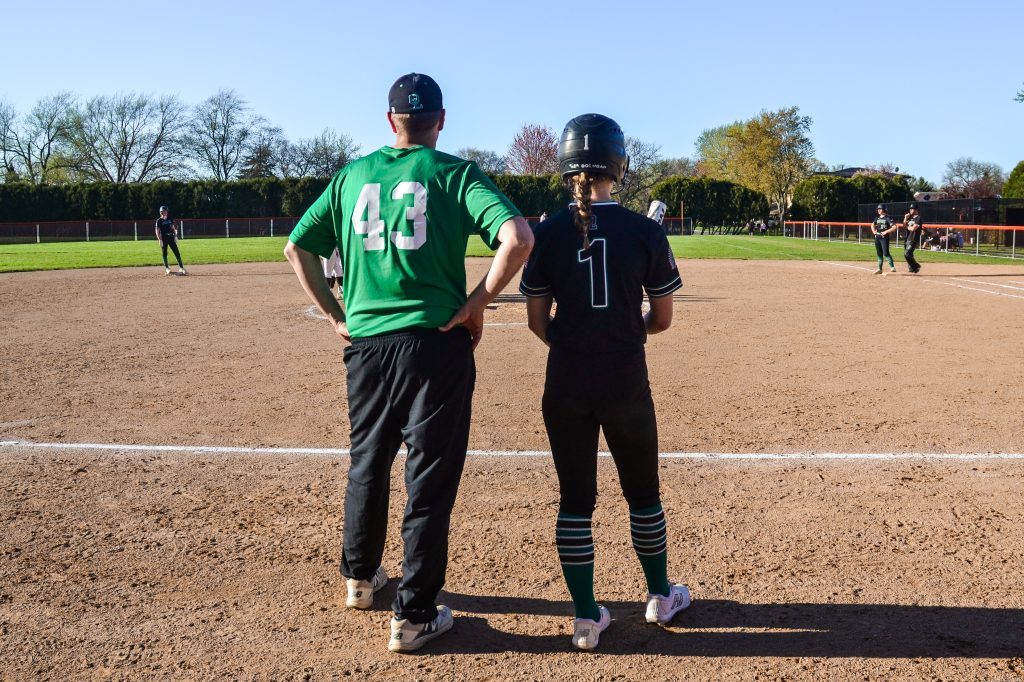
Softball | Oak Lawn’s Kasey Jackson fans 11 in loss to Shepard
Spread the loveBy Xavier Sanchez Correspondent Oak Lawn entered its South Suburban Conference matchup with Shepard having won six of its last seven games. The Astros — even hotter with seven straight victories after beginning the season with three consecutive losses — cooled off the Spartans (8-5, 4-2 SSC) for a day, winning 3-0 behind…
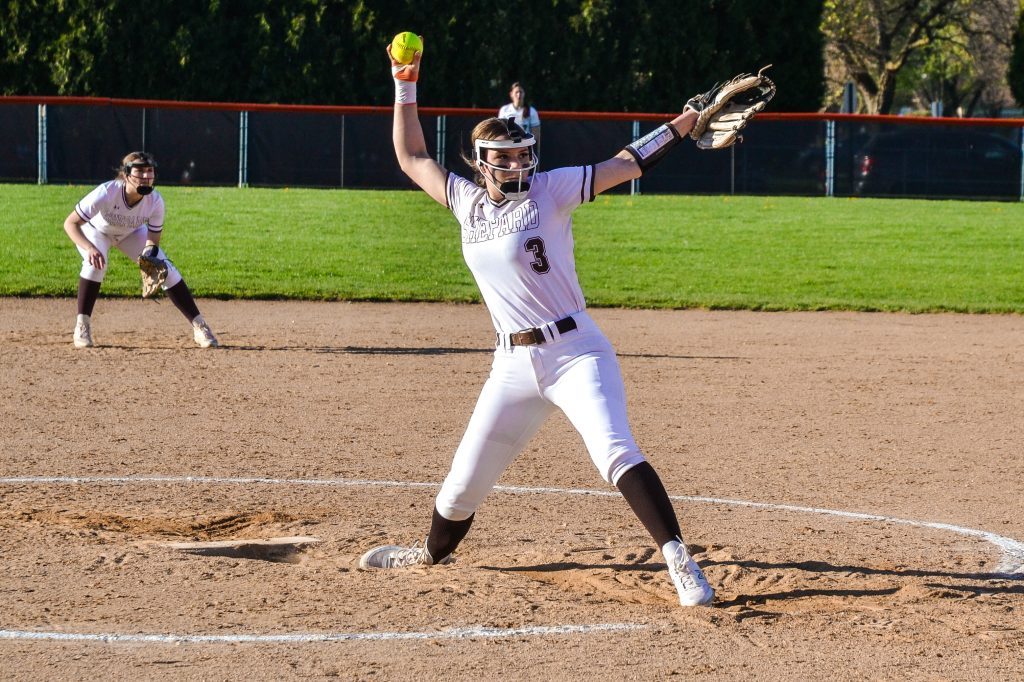
Softball | Shepard blanks Oak Lawn behind CG from Kailey Selvage, 2 RBI from Madison Scapardine
Spread the loveBy Xavier Sanchez Correspondent Temperatures are not the only thing starting to warm up in the Southwest Suburbs. Shepard, which began the season with three consecutive losses, defeated Oak Lawn, 3-0, on April 15 to run its winning streak to seven games. Astros junior pitcher Kailey Selvage tossed a complete-game shutout, striking out…
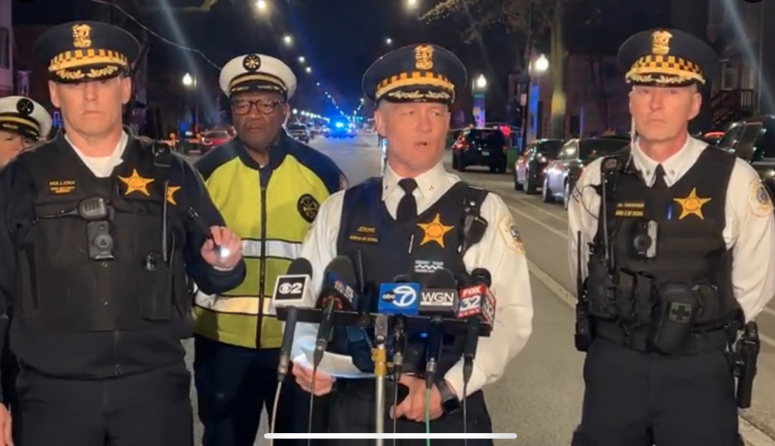
‘Horrific and unacceptable’
Spread the love. Police, neighbors decry shooting at family party . By Tim Hadac Drive-by shootings have become not at all unusual in recent years in Back of the Yards. Some might even call them common. What is still uncommon is for drive-by crimes to injure or even kill young children. But that is exactly…
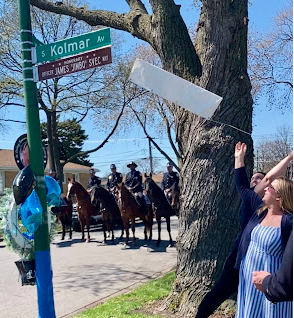
A blue salute in Scottsdale
Spread the love. Family, friends, co-workers and neighbors of the late CPD Officer James R. Svec Jr. –as well as elected and appointed officials– gathered at 77th and Kolmar last Saturday to unveil an honorary street sign saluting him for his sacrifice. Officer Svec died at age 59 in December 2021 from causes related to…
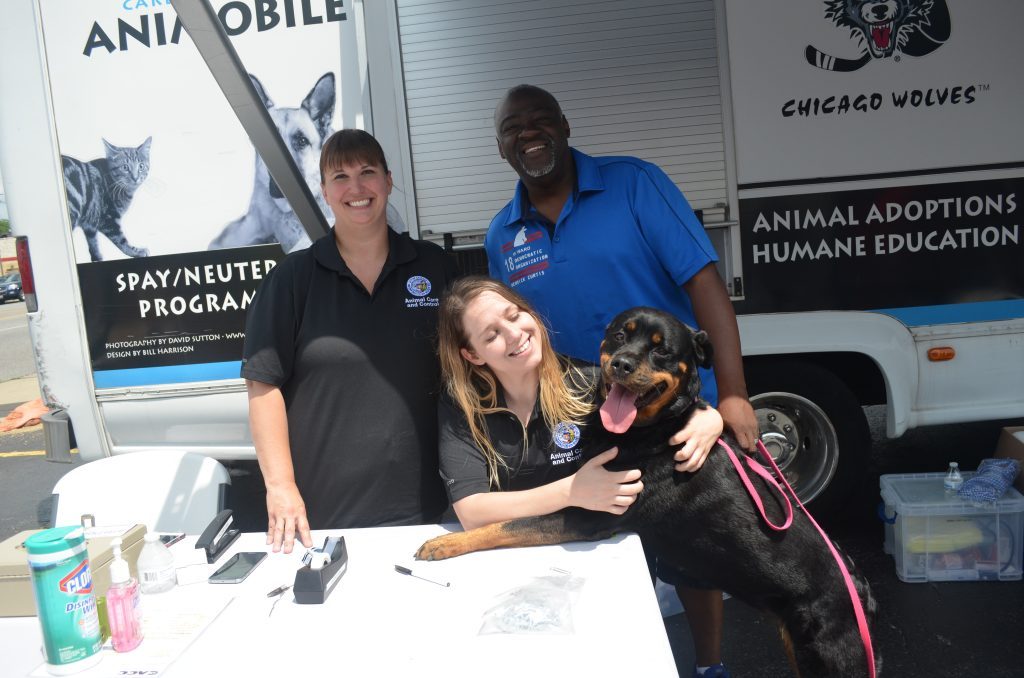
County vets offer reduced-price vax clinics
Spread the love. From staff reports The Cook County Department of Animal and Rabies Control is running its annual Partners in Prevention clinics now through mid-October. ARC is partnering with local animal organizations to offer reduced-cost or free one-year rabies vaccinations, as well as microchips. The partnerships are designed to link pet owners to organizations…

Twisted Shamrock hosts Masters-inspired fun
Spread the love. The drive from Chicago to Augusta, Ga. (home of the 2024 Masters professional golf tournament) is more than 800 miles, but those unwilling to make the trek recently had the option of simply heading over to Twisted Shamrock Pub, 6462 S. Central, for some Masters-inspired fun on Sunday, April 14. Both golfers…
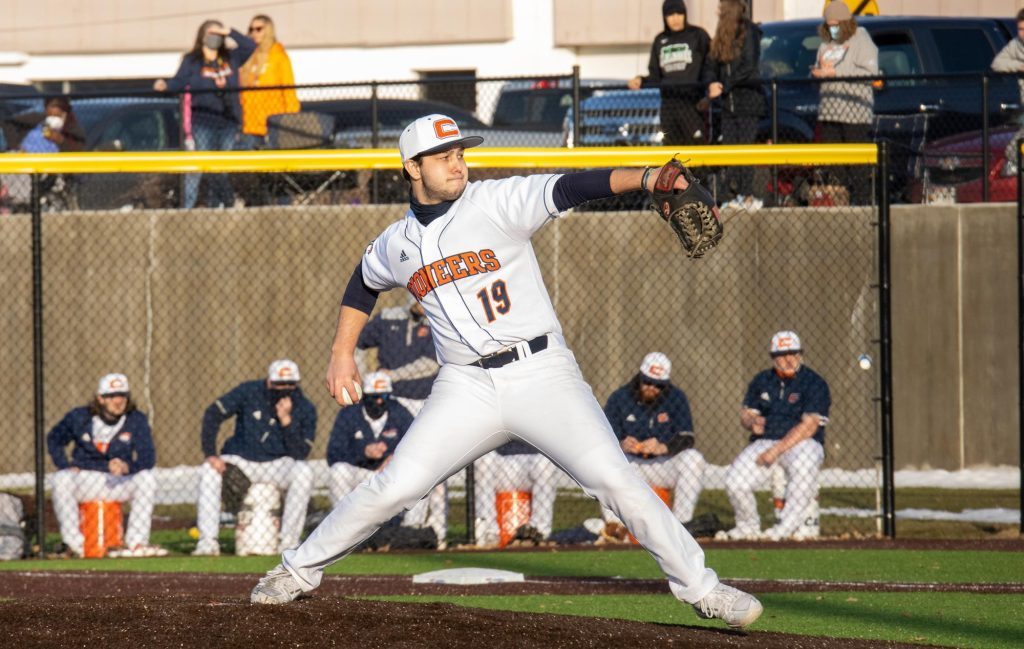
St. Laurence grad Brett Buzzelli hurling for Carroll
Spread the loveBy Mike Walsh Correspondent Carroll University senior right-hander Brett Buzzelli has been named the College Conference of Illinois and Wisconsin’s Pitcher of the Week for April 8. Buzzelli was the winning pitcher in an 8-3 victory over visiting Elmhurst University in Game 1 of a CCIW doubleheader. The St. Laurence graduate tossed seven…

Fire II wins, draws
Spread the loveBy Jef Vorva Correspondent The Chicago Fire FC II earned its first regulation victory of the 2024 MLS NEXT Pro season in a 2-0 clean sheet against Crown Legacy April 10 at SeatGeek Stadium. Defender Diego Konincks and captain David Poreba scored goals for the Fire. On April 14, the team had a…

Red Stars sans Swanson fall to Angel City
Spread the loveBy Jeff Vorva Correspondent Playing without scoring star Mallory Swanson, who was nursing a hip injury, the Chicago Red Stars lost for the first time this season, dropping a 1-0 decision April 13 to Angel City in front of an announced crowd of 3,168 at SeatGeek Stadium in Bridgeview. Angel City (1-2-1) started…
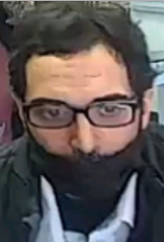
Hunt man who tried to rob Chase Bank
Spread the love. FBI looking for tips from public . From staff reports FBI officials are appealing to the public for help in finding a man who attempted to rob a Southwest Side bank branch. The bandit tried to rob the Chase Bank branch at 5687 S. Archer (just west of Laramie) at about 11…





